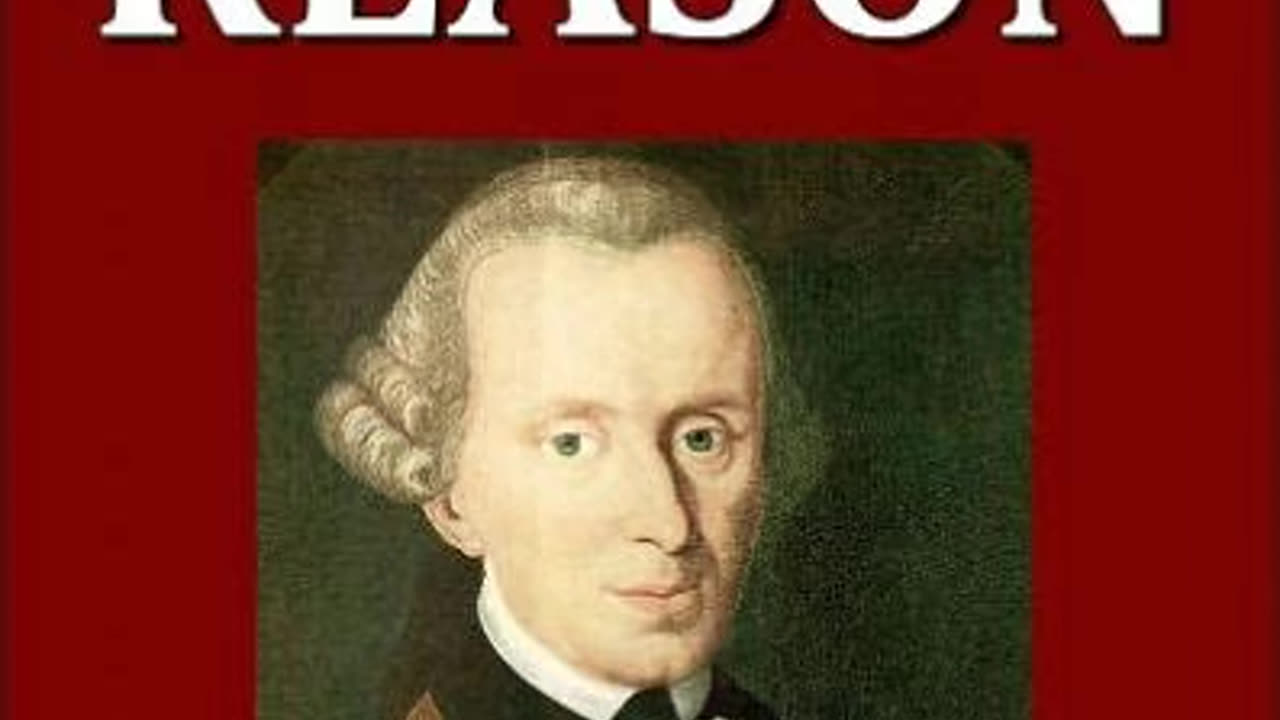Premium Only Content

The Critique of Practical Reason by Immanuel Kant | Summary and Critique
Buy Here: https://amzn.to/3WaS8P1
"""The Critique of Practical Reason"" is a philosophical work written by Immanuel Kant in 1788. In this book, Kant explores the foundations of ethics and moral philosophy, seeking to establish the principles of practical reason.
Kant distinguishes practical reason from theoretical reason and argues that it is concerned with moral judgments and the determination of moral duties. He introduces the concept of the categorical imperative, a universal moral law that guides moral actions based on rationality and the inherent dignity of rational beings. Kant emphasizes the importance of autonomy, the freedom to choose and obey moral principles.
The book examines the relationship between practical reason and freedom, asserting that moral freedom is possible because individuals possess rationality and can act in accordance with moral principles. Kant argues that morality and freedom are inseparable, and moral actions are grounded in the autonomy of the rational will.
Critics note that Kant's writing style and complex philosophical concepts make the book difficult to understand. Some argue that his categorical imperative lacks concrete guidance for specific moral dilemmas. Critics also point out that Kant's focus on reason neglects the role of emotions, empathy, and cultural variations in moral decision-making. The neglect of consequences and the emphasis on intention have been criticized for potentially leading to moral absolutism.
Despite these critiques, ""The Critique of Practical Reason"" remains an influential work in ethics and moral philosophy, shaping subsequent discussions and influencing contemporary ethical theories."
-
 LIVE
LIVE
The Rubin Report
58 minutes agoElon Musk’s Tweet Reveals He’s Ready to Go Nuclear on Judge Stopping DOGE
4,016 watching -
 LIVE
LIVE
Steven Crowder
2 hours ago🔴 Gulf of America Day: Why Trump's Renaming Spree is More Important than You Think
47,360 watching -
 LIVE
LIVE
LFA TV
15 hours agoSWAMPY SHOWDOWN! | LIVE FROM AMERICA 2.11.25 11AM
5,238 watching -
 LIVE
LIVE
Bannons War Room
1 year agoWarRoom Live
21,996 watching -
 LIVE
LIVE
Matt Kohrs
9 hours agoPowell Testifies, Musk OpenAI Drama & Markets Turn South || The MK Show
1,714 watching -
 17:40
17:40
Clownfish TV
12 hours agoUSAID Paid for Leftwing Media and Politico CAN'T Pay Their Employees?!
5072 -
 40:21
40:21
Randi Hipper
1 hour agoTHIS COIN IS GOING TO BLOW UP IN 2025! LATEST BITCOIN NEWS
874 -
 34:39
34:39
BonginoReport
5 hours agoWhy Did My Tax Dollars Fund a Terrorist’s Tuition??? (Ep.137) - 02/11/2025
68.7K112 -
 LIVE
LIVE
Wendy Bell Radio
6 hours agoCongress Needs To Go To Rehab
11,965 watching -
 1:23:25
1:23:25
Graham Allen
3 hours agoJudge BLOCKS Trump Fed Worker Buyout Offer!! + Google Has Up-Dated “Gulf Of America” FINALLY!
36.2K26